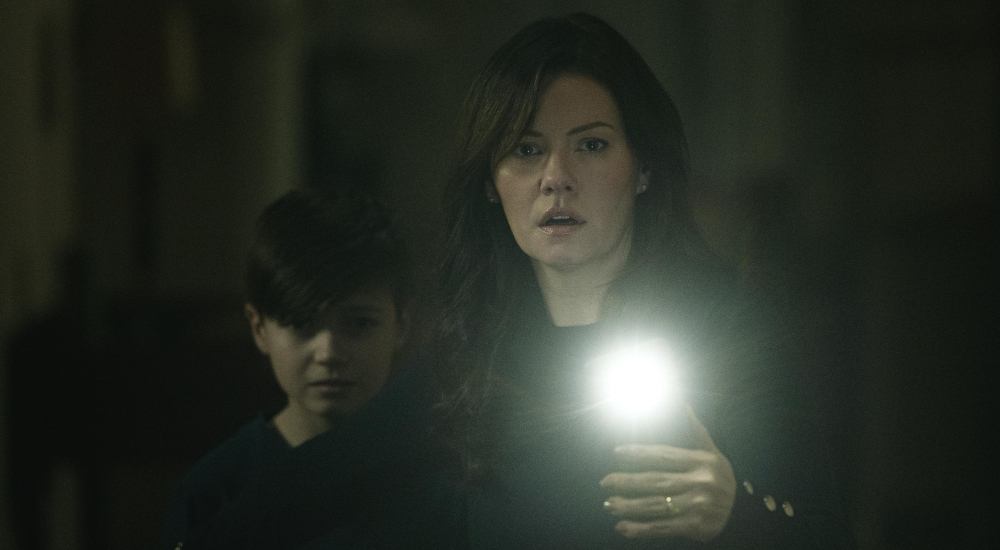"There was something there. I heard something."
A new home is a place for fresh starts. Though we don't know the reason, the Woods are in desperate need of one. But the Xaos House, an old, oversized mansion away from the city, doesn't appear to possess much goodwill.
Brendan Muldowney's The Cellar, layered in supernatural elements, sticks to the basics, refusing to forge its own path in a genre that yeans for creativity.
On the family's first night at their new home, a heavy wind brings an eerie sense of discomfort as lights begin to flicker before the power goes out entirely. Keira and Brian (played by Elisha Cuthbert and Eoin Macken, respectively) are at work, preparing an important pitch for the next day. Their daughter Ellie calls, an undeniable fear in her voice. She counts as she walks down the ten steps to the cellar and fuse box. Her mom listens intently on the other end of the line. When Ellie doesn't stop counting, her mom knows something is wrong.
Internal terror takes center stage as Keira anxiously works to find her daughter. A hardened relationship between the two is never fully explained, but the mental exhaustion is apparent from the film's opening scene. Their strain and frustration run deep. More than typical teenage angst, an unresolved issue lingers, a moment in their past that neither is willing to acknowledge.
Though both Keira and Brian lack emotion or urgency regarding their daughter's sudden disappearance, they are both proactive in the search. Muldowney uses a heavy amount of music to back the events as Keira hangs a missing person bulletin on a tree and continues to call the lead investigator in hopes for some positive news. But as with most films, the authorities are little more than a dead-end.
Shot on location in Roscommon, Ireland, The Cellar benefits from its visual scenery. The countryside and the home's inner workings give a creepy, isolated feel as the family scours for answers. But the film's dialogue prevents the story from settling. Unnatural and dry, the exchanges bear no solid rhythm or cadence. As a result, viewers struggle to connect.
Cuthbert does fine with the material given, but she falls victim to playing a predictable character that does nothing to warrant your sympathy. As she pieces together the clues scattered around the house and the situation becomes more evident, she forges ahead, uncaring of the consequences that might lie on the other end of the steps. This mindlessness is everything Keira is not, given the limited information we have concerning her job and attention to detail.
A mix of history, folklore, and mathematics gives the story its angle and grit. The narrative itself deserves high praise for its ingenuity. But the execution fails to materialize into any feeling of pressure or despair. Ellie has run away before. That partly explains her parents muted response. But even with Keira's visits to a professor at a nearby college to better understand a formula she discovered carved into one of the stairs, the pace struggles to increase to a level that seems appropriate given the situation's high sakes.
It isn't until the final minutes, when the story quickly crescendos to its peak, that we get a taste of what could have been. Immaculate set designs compliment a tale that sees all its parts come together in just the knick of the time. A slew of extras, walking along a baron ground, counting, is terrifying. Not to mention the horned demon that lurks in the shadows. The sudden jolt of panic shudders your inner soul as Keira belatedly realizes the magnitude. If only Muldowney had gotten The Cellar to such a point sooner.

